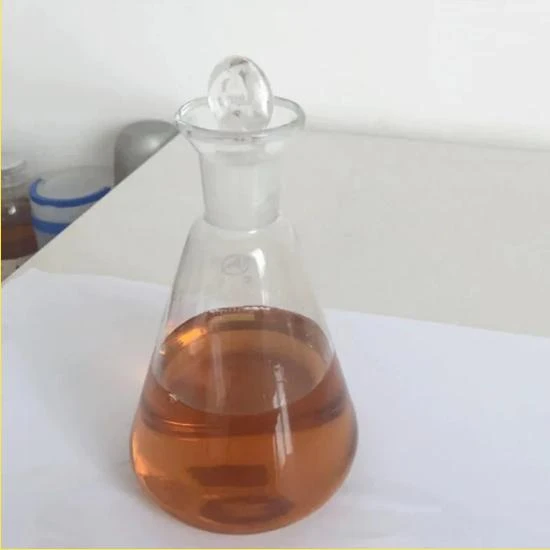
thickener e412
Understanding Thickener E412 Applications and Benefits
Thickener E412, commonly known as guar gum, is a natural polysaccharide derived from the seeds of the guar plant (Cyamopsis tetragonoloba). It is widely recognized for its thickening, binding, and stabilizing properties, making it a popular ingredient in various food and industrial applications. This article delves into the characteristics, uses, and benefits of E412, shedding light on its significance in different sectors.
Chemical Properties and Structure
Guar gum is composed primarily of galactomannan, a type of carbohydrate that consists of a chain of mannose residues with galactose units. This unique structure contributes to the gum's water-solubility and its ability to form viscous solutions. When mixed with water, E412 swells and increases the viscosity of the liquid, making it an effective thickener. Additionally, its natural origin and biodegradability enhance its appeal over synthetic thickeners.
Applications in Food Industry
In the food industry, E412 serves multiple purposes. It is commonly used in products such as sauces, dressings, dairy items, and baked goods. Its thickening capability allows manufacturers to achieve the desired texture while maintaining product stability. Guar gum also acts as a fat replacer and can improve the moisture retention in baked goods, which can enhance flavor and extend shelf life.
One notable application of E412 is in gluten-free products. Gluten provides elasticity and structure in traditional baked goods, but for those with gluten sensitivities or celiac disease, finding suitable alternatives can be challenging. Guar gum effectively mimics these properties, allowing for the creation of gluten-free cakes and bread with improved texture and mouthfeel.
Benefits Beyond Food
thickener e412

While E412 is predominantly known for its culinary applications, its benefits extend into other industries as well. In the cosmetic and pharmaceutical sectors, guar gum is utilized for its thickening properties, contributing to the stability and texture of creams, lotions, and gel formulations. Its ability to retain moisture makes it an ideal ingredient for keeping skin hydrated and improving the overall sensory experience of cosmetic products.
In the oil and gas sector, E412 is employed as a thickening agent in hydraulic fracturing fluids. By enhancing viscosity, guar gum helps to transport proppants within the fracture networks, facilitating more effective extraction processes. Its role in this industry showcases the versatility of E412 beyond conventional applications.
Health Aspects and Safety
E412 is generally recognized as safe (GRAS) for use in food and has been approved by various regulatory agencies, including the FDA. As a natural ingredient, it offers a clean label alternative for consumers seeking healthier food options. Additionally, guar gum contains soluble fiber, which can aid digestive health and contribute to a balanced diet.
However, it is worth noting that excessive consumption can lead to gastrointestinal distress in some individuals. As with any food ingredient, moderation is key, and consumers with specific dietary concerns should consult healthcare professionals if unsure about its suitability.
Conclusion
Thickener E412, or guar gum, is a versatile and valuable ingredient found across a multitude of industries. From enhancing the texture of food products to stabilizing cosmetics and facilitating oil extraction, its applications reflect its diverse functional properties. As consumers become increasingly aware of what they eat and use, the demand for natural ingredients like E412 will continue to rise. With its unique blend of thickening ability, health benefits, and eco-friendly attributes, E412 is set to maintain its relevance in future formulations across various sectors, promising a balance of functionality and safety in an ever-evolving marketplace.
-
The Safety Challenges of Ammonium Nitrate FertilizerNewsJun.26,2025
-
The Critical Role of Mining ChemicalsNewsJun.26,2025
-
Shelf Life of Glacial Acetic Acid Food GradeNewsJun.26,2025
-
Enhancing PVC Longevity with 1,2,3-Benzotriazole InnovationsNewsJun.26,2025
-
China’s Dominance in Food Additive ProductionNewsJun.26,2025
-
Can Aluminum Hydroxide Replace More Toxic Alternatives?NewsJun.26,2025
-
PE and PP Plastics with Benzotriazole AdditivesNewsJun.12,2025
Hebei Tenger Chemical Technology Co., Ltd. focuses on the chemical industry and is committed to the export service of chemical raw materials.
-

view more DiethanolisopropanolamineIn the ever-growing field of chemical solutions, diethanolisopropanolamine (DEIPA) stands out as a versatile and important compound. Due to its unique chemical structure and properties, DEIPA is of interest to various industries including construction, personal care, and agriculture. -

view more TriisopropanolamineTriisopropanolamine (TIPA) alkanol amine substance, is a kind of alcohol amine compound with amino and alcohol hydroxyl, and because of its molecules contains both amino and hydroxyl. -

view more Tetramethyl Thiuram DisulfideTetramethyl thiuram disulfide, also known as TMTD, is a white to light-yellow powder with a distinct sulfur-like odor. It is soluble in organic solvents such as benzene, acetone, and ethyl acetate, making it highly versatile for use in different formulations. TMTD is known for its excellent vulcanization acceleration properties, which makes it a key ingredient in the production of rubber products. Additionally, it acts as an effective fungicide and bactericide, making it valuable in agricultural applications. Its high purity and stability ensure consistent performance, making it a preferred choice for manufacturers across various industries.











